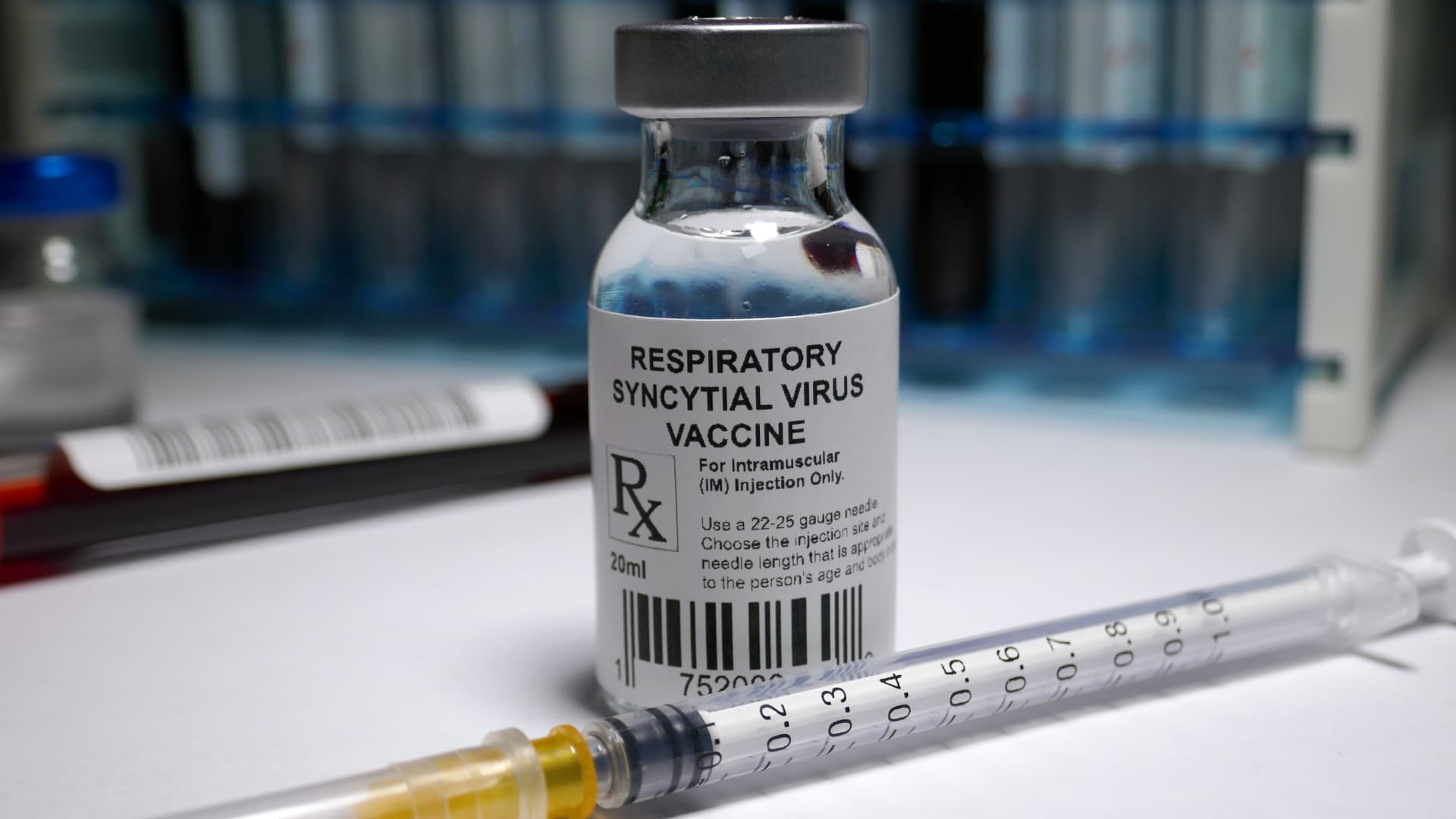Respiratory syncytial virus - viral vaccine under researchHailshadow | Istock | Getty ImagesPfizer's vaccine that protects adults ages 60 and older fr
Respiratory syncytial virus – viral vaccine under research
Hailshadow | Istock | Getty Images
Pfizer‘s vaccine that protects adults ages 60 and older from respiratory syncytial virus was slightly less effective after 18 months, according to clinical trial results the company announced Wednesday.
The data is from New York-based Pfizer’s clinical trial on more than 34,000 older adults over two RSV seasons, or 24 months. The latest data is specifically on participants in the Northern Hemisphere at “mid-season two” in the trial, which is around 18 months after vaccination.
The shot was 78.6% effective against more severe lower respiratory tract illness with three or more symptoms after 18 months, down marginally from 85.7% at one year. Those symptoms include wheezing, shortness of breath, rapid and shallow breathing, and mucus production.
The vaccine was roughly 49% effective against the same condition with two or more symptoms after 18 months, according to Pfizer. That’s a steeper decline from the shot’s 66.7% efficacy at one year.
The vaccine was generally well tolerated, with no adverse events reported by participants at the 18-month mark.
Pfizer presented the results to an advisory committee of the Centers for Disease Control and Prevention on Wednesday. The committee will form a recommendation on when and how often the company’s RSV shot should be administered in the U.S. now that the Food and Drug Administration has approved the jab.
Pfizer’s RSV vaccine is the second to win approval after a shot from GlaxoSmithKline, which will present similar longer-term data on Wednesday.
Pfizer’s results are a first glimpse at its vaccine’s durability in protecting against RSV, which causes mild symptoms similar to a cold in most people but more severe infections in older adults and children.
The data suggests that the protection the vaccine provides slowly wanes over time, similar to what is observed with shots for Covid and the flu.
But the 18-month data also suggests Pfizer’s shot is still generally protective against RSV after one year.
It’s still unclear what the vaccine’s efficacy will look like at 24 months. Pfizer expects to release that data later this year, which will provide a better picture of the shot’s durability.
Annaliesa Anderson, head of Pfizer’s vaccine research and development, told CNBC that the company is “very encouraged” by data from the phase three clinical trial.
She noted the vaccine maintained high efficacy against lower respiratory tract illness with three or more symptoms, which is more severe than the same condition with two or more symptoms.
“As with most vaccines, you’re really looking for an impact against more severe disease that causes higher levels of mortality, morbidity and health-care associated contact,” Anderson told CNBC. “To be able to see high efficacy carrying on is very important to us, and we think it’s going to provide people comfort as they take the vaccine.”
Pfizer hasn’t released data on the effectiveness of its vaccine against severe RSV disease defined as a patient requiring hospitalization, oxygen support or a mechanical ventilator.
Anderson said studies are ongoing, and so is research evaluating the shot’s efficacy in older adults with weak immune systems.
RSV kills 6,000 to 10,000 older adults and hospitalizes 60,000 to 160,000 of them every year, according to the CDC.
The risk of hospitalization increases with age, and adults ages 70 and older are more vulnerable.
Pfizer estimates that if 50% of people ages 60 and older receive its shot for older adults, the vaccine could prevent more than 5,000 deaths, 68,000 hospitalizations, 51,000 emergency department visits and more than 422,000 outpatient visits.
www.cnbc.com
